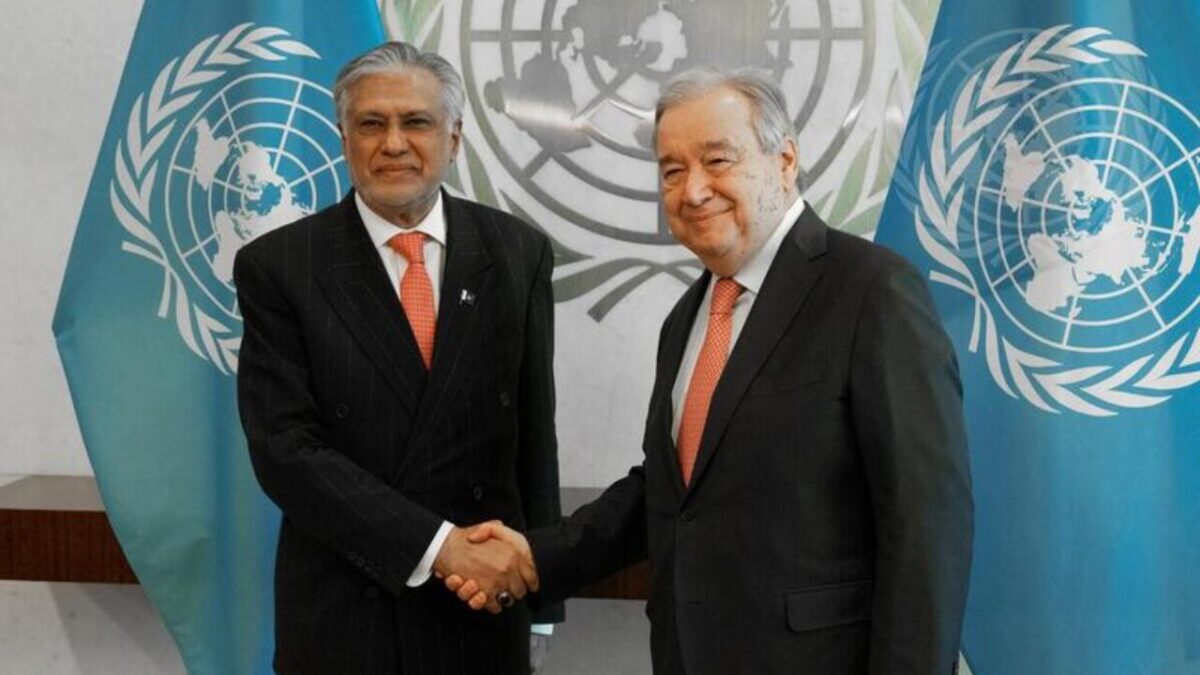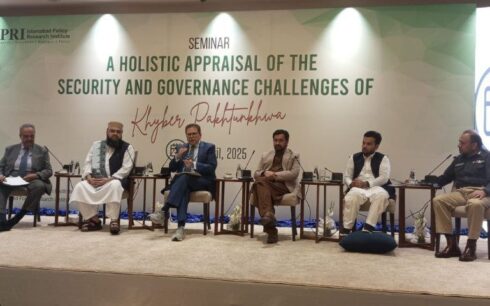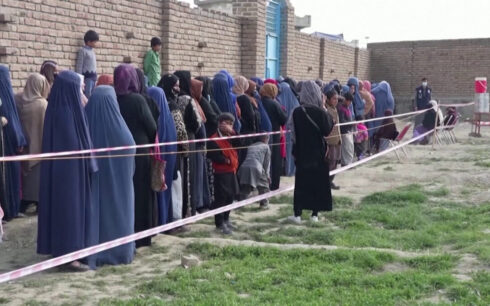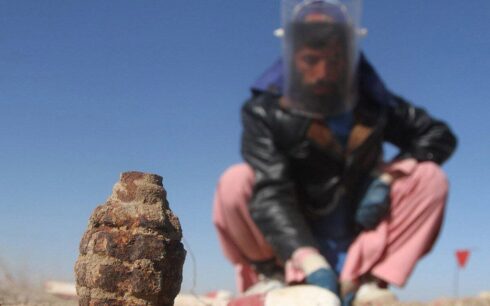New York — Pakistan’s Deputy Prime Minister and Foreign Minister, Muhammad Ishaq Dar, has urged the United Nations to support efforts to combat terrorism both within Afghanistan and emanating from its territory, according to a statement by the Pakistani foreign ministry.
The statement said that Dar raised this concern during a meeting with U.N. Secretary-General António Guterres in New York. The statement emphasized that the minister highlighted the issue of cross-border terrorism from Afghanistan and called for U.N. support in addressing the threat.
Dar also reaffirmed Pakistan’s commitment to providing humanitarian aid to millions of destitute Afghans and promoting Afghanistan’s economic development. He stressed the importance of regional connectivity projects linking Central Asia to Pakistan through Afghanistan.
The Pakistani Foreign Ministry further stated that the meeting underscored Islamabad’s strong support for the U.N.’s central role in addressing global challenges, including peace and security, development, and climate change. Dar reiterated Pakistan’s commitment to fostering international peace and security.
While the Taliban have repeatedly denied the presence and activities of extremist groups in Afghanistan—insisting that their government poses no threat to the region or the world—a recent U.N. report presents a different picture.
According to findings by the U.N. Security Council’s sanctions monitoring team, Tehrik-i-Taliban Pakistan (TTP) and Tajikistan’s Jamaat Ansarullah, with support from Al Qaeda and the Afghan Taliban, have established training camps inside Afghanistan.
The report states that, in addition to camps and facilities operated by Al Qaeda, TTP and Jamaat Ansarullah have set up new training centers in the provinces of Khost, Kunar, Nangarhar, Paktika, and Takhar. Al Qaeda and its affiliated groups are now reportedly active in 14 Afghan provinces.
These findings contradict Taliban claims that no extremist groups are operating within Afghanistan.
TTP has carried out multiple attacks inside Pakistan, while Jamaat Ansarullah is focused on overthrowing the government of Tajikistan.
Meanwhile, the Long War Journal has reported, citing these findings, that Al Qaeda continues to support most extremist groups in the region and maintains operational hubs inside Afghanistan.





